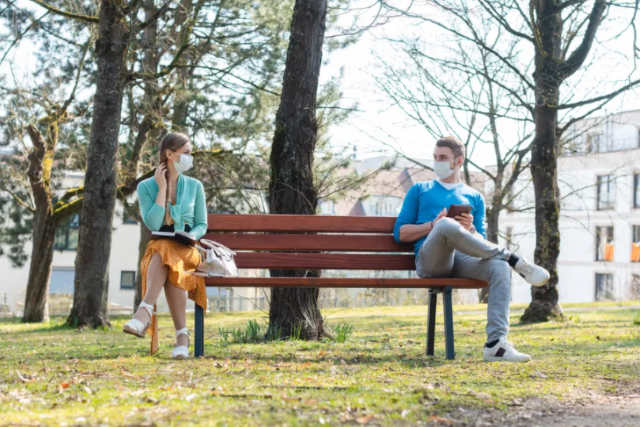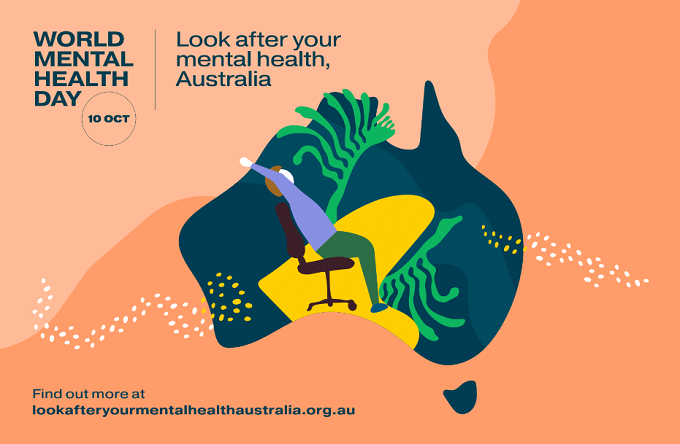Community mental health services – for every family in every community

We are currently marking time in new ways – how many new cases today? When and how restrictions will be eased is linked to how many are vaccinated… single dose, double dose, jabs, masks and more.
And while keeping us safe from the virus, we know the restrictions have had a negative impact upon mental health for many, particularly the young.
With World Mental Health Day fast approaching on Sunday 10 October, and many of us still scheduled to be in lockdown, we need to reflect on how we can improve our own mental health, but also for others in the community.
In November we are expecting governments to announce they have achieved a National Agreement on Mental Health and Suicide Prevention. We expect this Agreement to provide the platform for a better integrated mental health system. A system that will have impacts for years to come.
As our members and stakeholders are well aware, Mental Health Australia is strongly committed to the Productivity Commission Report on mental health and to the recommendations made within it. The extent of the review and the rigorous consultation with the sector over an extended period, and the sector’s support remains one of the most powerful enablers for implementation.
At its heart, the PC Report shifts the conversation in three key ways. Firstly, it places people with mental ill-health and the people who love and care for them at the heart of the reform agenda. Secondly, it takes a life cycle and social determinants approach, recognising that both developmental life stages and the contexts in which people live impact our mental health and wellbeing, and that mental health responses should take these circumstances into account. Thirdly, it recognises that system reform will require a broad set of actions, across a range of domains, over a period of time and with clear coordination and strong leadership.
Mental Health Australia fundamentally supports these three key themes and urges governments to prioritise investment in expanded and integrated community-based mental health care options to implement this change. These expanded options need to include employment, education and housing, not just a focus on ‘health’ services.
We believe that the driving principle for reform must be to build mental health supports in the community and reduce hospital-based care where possible. Evidence shows that community-based alternatives such as hospital in the home or strengthened community mental health service options are more effective and cost-effective.
We support the action underway as a result of the Victorian Royal Commission commitment to a “future mental health and wellbeing system [that] will be fundamentally restructured around a community-based model of care, where people access treatment, care and support close to their homes and in their communities”.
Psychosocial support services form part of a comprehensive community-based response and there is currently a joint responsibility between the Australian Government and the state and territory governments for funding and managing these services. The PC Report identified a significant gap in funding for psychosocial services outside of the NDIS and we will be working with the psychosocial sector in its advocacy efforts to have this addressed once the National Agreement is finalised.
There are further questions in relation to integration that we are continually raising. The states and territories are struggling to ensure their acute care and hospital services are functioning 24/7 especially in the context of a surge in presentations to emergency departments as a result of the challenges imposed through the pandemic.
It is urgent that the mental health ecosystem including consumers and carers, and governments work together to design a better community mental health system, including but not limited to psychosocial support services.
A real commitment to this must be at the heart of the National Agreement due in November.
Have a good weekend.

Leanne Beagley
CEO
Janne McMahon stepping back from Lived Experience Australia
Former Mental Health Australia board member, Janne McMahon has announced she will be stepping down from the Board Chair and Executive Director positions at Lived Experience Australia. She will be continuing a connection with the organisation, which she founded nearly 20 years ago, two days a week. Janne has made a huge contribution to the mental health sector as a passionate advocate, including time as a Board Director at Mental Health Australia, and we wish her well for her future endeavours.
World Mental Health Day - Become a Partner
To become a partner for the upcoming World Mental Health Day campaign, and receive a FREE Partner Pack including the chance to record your own campaign video, please email nikki.hogan@mhaustralia.org or find out more on the World Mental Health Day website.
Some great videos have come through already, including this one starring Grant "Scooter" Patterson.
World Mental Health Day - Healthcare Professionals Research
We are conducting research into the mental health and wellbeing of Australian healthcare professionals, for public release on World Mental Health Day. Healthcare professionals are the most health-literate members of our society but are under significant pressure due to the COVID-19 pandemic. In line with the campaign theme, we are seeking to understand how the pandemic has affected you personally, and what strategies you have used to maintain your mental health and wellbeing in 2021. Your behaviours, tips and advice may provide valuable insight to the rest of the community during this challenging time. Please feel free to distribute the survey amongst health care colleagues. Find the survey here.

Co-producing Lived Experience Leadership resources - a new partnership in mental health

The National Mental Health Consumer and Carer Forum (NMHCCF) and the National PHN Mental Health Lived Experience Engagement Network (MHLEEN) have established a formal partnership and MOU to co-contribute and co-produce mental health lived experience (consumers, carers and peer workers) leadership capacity resources.
The rationale for these projects is that an increasingly significant feature of the contemporary mental health policy environment is lived experience co-production and leadership. The projects aim to consolidate and promote existing initiatives and resources to facilitate effective growth of mental health lived experience voices and leadership.
The three projects have NMHCCF and MHLEEN members on project steering groups. The projects are:
- The establishment a central national repository of mental health consumer and carer leadership-related knowledge and initiatives to be included on the NMHCCF website
- The co-design of a Mental Health Lived Experience Governance Framework and Toolkit to guide identified priority organisations and jurisdictions when engaging with people with lived experience, and
- Review of formal lived experience leadership education and training
The projects are due for completion in mid-2022. Further information on these projects can be obtained from the NMHCCF Secretariat at: nmhccf@mhaustralia.org
Further information about the NMHCCF can be found at: www.nmhccf.org.au and further information about MHLEEN can be found at: https://mymentalhealth.org.au/consumers-and-carers/mental-health-lived-experience-engagement-network-mhleen
|
On Monday I have a meeting with the NDIS Quality and Safeguards Commission and on Tuesday I have a meeting with the Psychotherapists and Counsellors Federation Australia.
On Wednesday I am meeting with a family violence survivor and advocate.
On Thursday I have Primary Care Reform Steering Committee meeting and a NDIA Co-design workshop.
On Friday We have a National Digital Health Strategy consultation and later a National Disability and Carer Alliance meeting.
|
|
|